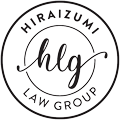
Services
Providing legal guidance in estate planning, trust administration, probate, and conservatorships.
01
Estate Planning
Estate planning is about being proactive and planning ahead to put together a thoughtful plan that manages the many facets of life, from family dynamics, finances, to healthcare matters.
We work closely with our clients to design a customized estate plan that meets their unique needs and wishes, giving them peace of mind that they’ve prepared for the unexpected.
02
Trust Administration
Trust Administration is the process of managing and executing a valid trust left behind by an individual who has died or become incapacitated. We work with the trustee (designated individual) to administer the trust.
This process entails understanding the set of instructions or wishes outlined in the trust and devising a strategic plan to properly carry out these wishes in a way that protects and preserves the legacy of the individual.
03
Probate
Probate is the legal process where a court decides how an individual’s estate (or assets) is distributed upon his/her death. This legal process is required when proper estate planning documents were not established.
The probate process is time-consuming, costly, and often complicated. We work with our clients to ensure they are well informed and help guide them every step of the way.
04
Conservatorship
Conservatorship is when an individual or institution seeks a judge’s approval to make healthcare and/or financial decisions for someone who can no longer make these decisions on their own. We help clients with the legal process related to general and limited conservatorships.
A general conservatorship is typically sought for adults who have become incapacitated (i.e. an elderly person with dementia). A limited conservatorship is generally pursued for individuals born with developmental disabilities (i.e. an individual with Down syndrome who recently turned 18 years old).
Frequently Asked Questions
A printable version of the FAQs is available in the Resources section.
An estate plan generally includes key estate planning documents such as a will and/or trust, an advance health care directive, a durable power of attorney, and/or a nomination of guardianship (over your minor children). Your estate plan should be customized to meet your specific needs and wishes.
The process can take anywhere between one to two months to complete. Many factors can affect the timeline from how complicated your situation is, to the time it takes to provide responses, to aligning our schedules. Rest assured, we are here to work with you to meet your estate planning needs in a timely fashion. If you should need an estate plan in an expedited time frame, we offer this option for an additional fee.
At Hiraizumi Law Group, an estate plan starts at $2,495 for a single person and $3,495 for a couple for a foundational package which includes a will, trust, and medical/financial estate planning documents, such as an advance health care directive and a durable financial power of attorney. This pricing also includes notary and recording fees.
Your estate planning needs may require less or more than what’s provided in the foundational package. The consultation meeting will allow us to properly assess what is required to meet your specific needs.
Yes, you can create estate planning documents such as a will using an online legal provider for an affordable rate but there are pitfalls of Do-It-Yourself estate planning.
When you hire an estate planning attorney, you’re hiring someone who is well versed in this area of law and understands the nuances that may impact your estate from tax implications to federal and state laws. Plus, an estate planning professional has experience handling a variety of scenarios and may present some options that you didn’t know were available with the end goal of putting together a customized estate plan that’s tailored to your needs and wishes.
One of the major benefits of estate planning is having the peace of mind that you’ve prepared for the unexpected. While we can’t predict what happens in the future, estate planning gives you the control to decide how you’d like to take care of matters that are most important to you including ensuring your loved ones are cared for and protected, as well as laying out a plan on how you’d like to manage your health, your finances, and your assets, in the event you become seriously injured, sick, or pass away.
The best time to consider estate planning is before something bad happens. Too often we work with families who need help handling the affairs of a loved one who has passed away or become ill or injured. At that point, there may be fewer options available to resolve matters and in some cases, the only legal solution may require the family to go to court for resolution.
The bottom line is don’t wait for something bad to happen before you consider estate planning. Estate planning is about being proactive not reactive to unforeseen circumstances. You don’t need to wait until you’re retired or have significant wealth to have an estate plan. Whether you’re 18 years old or 70 years old, you should consider putting together an estate plan that fits your needs.
20’s: Once you turn 18 years old, your parents no longer have the authority to make healthcare and/or financial decisions on your behalf. An advance healthcare directive and durable power of attorney are key estate planning documents to consider. An advance healthcare directive lays out what actions should be taken related to your health and designates a healthcare power of attorney to make these decisions on your behalf in the event you’re not able to make them. You should also consider appointing a financial power of attorney to make financial decisions on your behalf if you can no longer make decisions due to illness or injury.
30’s: You likely own property, could be married, and/or have minor children. You should ensure your power of attorney designations and healthcare documents are updated to include your spouse. You should also consider a will and/or trust, to ensure your assets and/or loved ones are protected. If you have minor children, it’s important to establish a Nomination of Guardianship. This document designates a legal guardian for your minor children, in the event you and your spouse are not able to care for them.
40’s & 50’s: At this stage, you’ve likely acquired additional assets other than your home, which may include a secondary residence or vacation rental(s), investment accounts, and retirement accounts. If so, it’s important to ensure these assets are properly funded by your trust and/or your beneficiaries are updated.
60’s: Consider reviewing who you’ve appointed as the individuals to serve in a fiduciary capacity (i.e. trustee, healthcare agent, financial power of attorney, etc.). For example, you may consider updating your trustee from your sibling to your adult child. This change could happen for a number of reasons including your sibling is close in age to you, has health issues, and/or lives far away from you. Make sure the designated individuals are still able to effectively fulfill their roles.
70’s & Up: We suggest reviewing your advance healthcare directive to ensure it’s up-to-date as health issues are more common at this stage in life. Also, it’s likely you have grandchildren and may want to update your estate planning documents to include them.
If you choose not to have an estate plan, your loved ones will likely need to go to probate to settle matters related to your estate. Even if you don’t think you have a lot at stake, you’re essentially letting the court and the laws of the state of California dictate who gets your assets after you pass away. There’s no guarantee your wishes will be carried out and/or your loved ones will be cared for and protected.
We recommend reviewing your estate plan every 3-5 years.
Events that may require you to update your estate plan include:
- Changes in family composition (marriage, divorce, the birth of child, child turns 18 years old)
- Substantial inheritance or sudden wealth creation
- Major business developments
- Increased liability or risk
- Changes in state or federal laws
Ready to Get Started?
Now that you have some information about estate planning, are you ready to get started?


